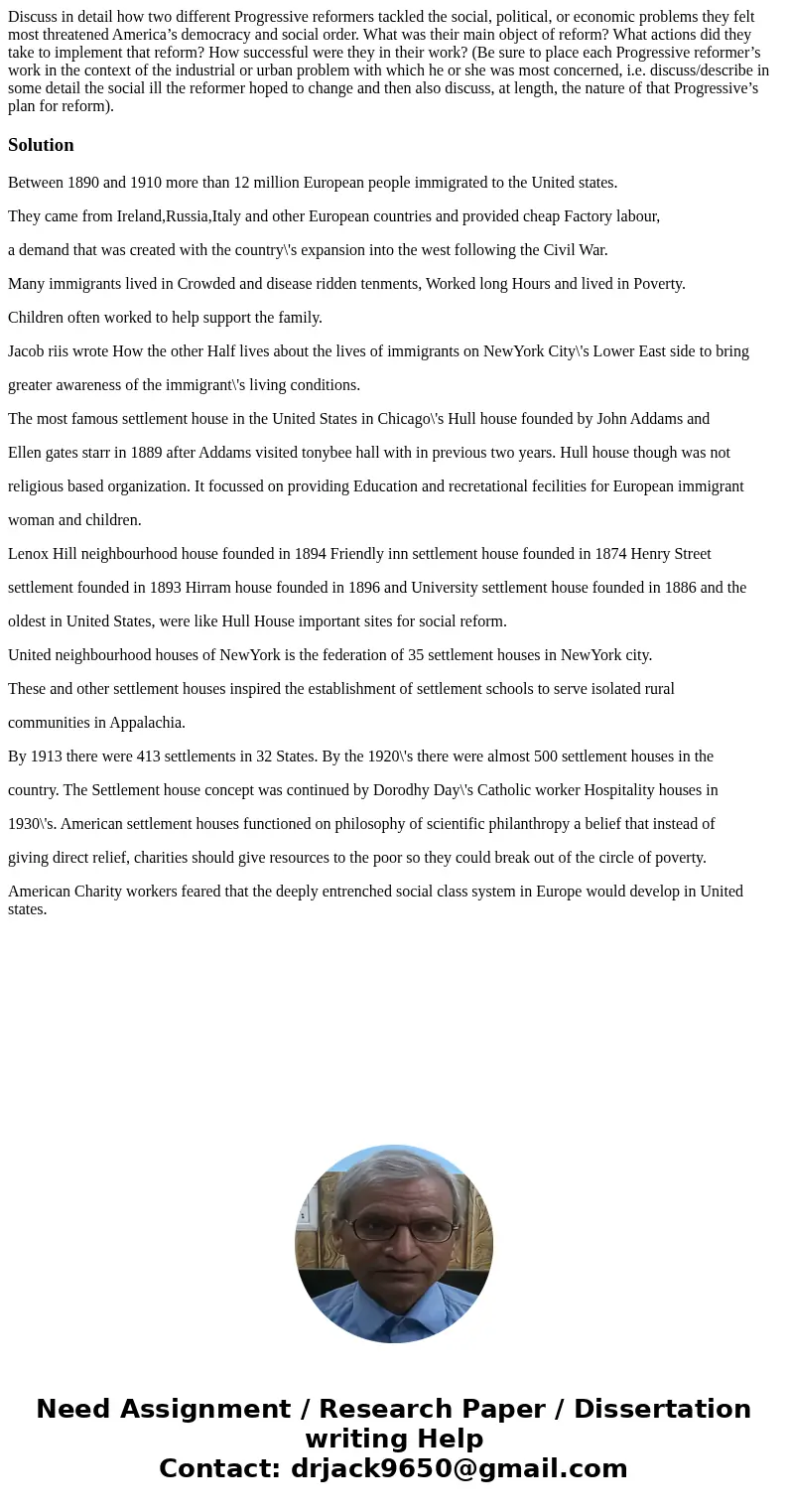Discuss in detail how two different Progressive reformers ta
Discuss in detail how two different Progressive reformers tackled the social, political, or economic problems they felt most threatened America’s democracy and social order. What was their main object of reform? What actions did they take to implement that reform? How successful were they in their work? (Be sure to place each Progressive reformer’s work in the context of the industrial or urban problem with which he or she was most concerned, i.e. discuss/describe in some detail the social ill the reformer hoped to change and then also discuss, at length, the nature of that Progressive’s plan for reform).
Solution
Between 1890 and 1910 more than 12 million European people immigrated to the United states.
They came from Ireland,Russia,Italy and other European countries and provided cheap Factory labour,
a demand that was created with the country\'s expansion into the west following the Civil War.
Many immigrants lived in Crowded and disease ridden tenments, Worked long Hours and lived in Poverty.
Children often worked to help support the family.
Jacob riis wrote How the other Half lives about the lives of immigrants on NewYork City\'s Lower East side to bring
greater awareness of the immigrant\'s living conditions.
The most famous settlement house in the United States in Chicago\'s Hull house founded by John Addams and
Ellen gates starr in 1889 after Addams visited tonybee hall with in previous two years. Hull house though was not
religious based organization. It focussed on providing Education and recretational fecilities for European immigrant
woman and children.
Lenox Hill neighbourhood house founded in 1894 Friendly inn settlement house founded in 1874 Henry Street
settlement founded in 1893 Hirram house founded in 1896 and University settlement house founded in 1886 and the
oldest in United States, were like Hull House important sites for social reform.
United neighbourhood houses of NewYork is the federation of 35 settlement houses in NewYork city.
These and other settlement houses inspired the establishment of settlement schools to serve isolated rural
communities in Appalachia.
By 1913 there were 413 settlements in 32 States. By the 1920\'s there were almost 500 settlement houses in the
country. The Settlement house concept was continued by Dorodhy Day\'s Catholic worker Hospitality houses in
1930\'s. American settlement houses functioned on philosophy of scientific philanthropy a belief that instead of
giving direct relief, charities should give resources to the poor so they could break out of the circle of poverty.
American Charity workers feared that the deeply entrenched social class system in Europe would develop in United states.

 Homework Sourse
Homework Sourse